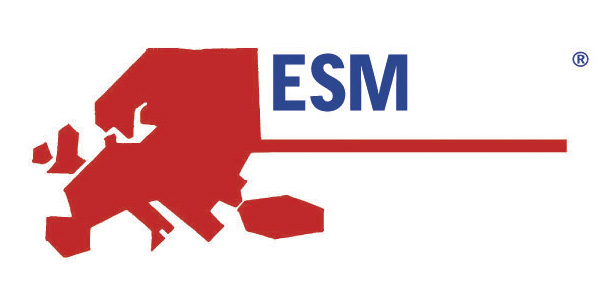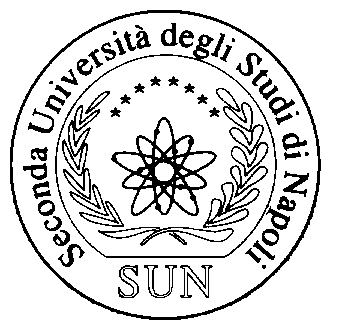
ESM©'2004
October 25-27, 2004 - UNESCO, Paris, France
Conference Themes
Conference Themes
Selected papers will appear in a special issue of the International Journal of Computational Science and Engineering (IJCSE) to be published by InderScience: http://www.inderscience.com/catalogue/c/ijcse/indexijcse.html
The final programme can be downloaded here.
Methodology and Tools
Modelling Methodology
Continuous, discrete and hybrid simulation methodology, Simulation environments, Multi-paradigm simulation, Simulation uncertainty, Simulation visualisation, Integration of simulation and geographical information systems, Object-oriented programming and Languages, Multi-paradigm Languages, Software comparisons. Numerical Methods for Simulation, Mathematical Analysis in Simulation, Parallel Simulation Methodology, Discrete Event Simulation, Simulation Fidelity and Performance Evaluation, Advanced Training and Simulation Concepts for Education, Multiparameter Sequential Optimization Methods in Simulation, Verification, Validation, and Control in Complex Systems Simulation, Distributed and Parallel Systems Simulation, Combined Continuous and Discrete Event Models, Symbol Analysis and Manipulation of Equation-Based Models, Simultaneous vs Modular Simulation Methods, Standardization Issues Submit your proposal here
Object Orientation and Re-Use
Object-Oriented Modelling Languages, Modularity, Model Structuring,
Inheritance, Model Re-use, Organization of Model Libraries Submit
your proposal here
Tools
 Simulation Tools, Statistical Output Evaluation Tools, Optimization Tools, Special Purpose Simulation Languages and Tools, Simulator
Development Environments, Interfaces for Coupling with External Tools
Submit
your proposal here
Simulation Tools, Statistical Output Evaluation Tools, Optimization Tools, Special Purpose Simulation Languages and Tools, Simulator
Development Environments, Interfaces for Coupling with External Tools
Submit
your proposal here
Simulation and AI
Simulation and AI
AI Based Simulation Languages, Special Architectures, Graphical Simulation Environments and Simulation Software Tools, Intelligent Simulation Environments, Parallel Processing Environments for Simulation, User Friendly Software Tools, Advanced Man-Machine Interfaces, Graphical Model Editors, Browsing Facilities, Database Management of Models and Results, Architecture of Modelling and Simulation Environments Submit your proposal here
AI and Expert Systems
Expert Controllers and Genetic Algorithms in Simulation, Knowledge Based Simulation Tools, AI and Expert Systems in Simulation. Submit your proposal here
AI and Neural Networks
 Classification, Data analysis, Fault tolerance, Forecasting,
Knowledge acquisition, Economics and Finance, Planning, Pre-treatment of data, Process control, Robotics, Speech and image
recognition, Web intelligence, involving methodologies such as: Hybrid systems (GA, fuzzy, symbolic representation), Methods or tools for evaluating ANN performance, Reinforcement Learning,
Simulation tools (research, education, development), Neural nets for simulation: modelling of parts (components) of the system simulated
by neural networks, evaluation of simulation models using neural nets, decision support in simulation models by neural nets; Simulation of neural nets: systems of pre-designed neural networks,
techniques and tools for simulation and programming of neural networks. Submit
your proposal here
Classification, Data analysis, Fault tolerance, Forecasting,
Knowledge acquisition, Economics and Finance, Planning, Pre-treatment of data, Process control, Robotics, Speech and image
recognition, Web intelligence, involving methodologies such as: Hybrid systems (GA, fuzzy, symbolic representation), Methods or tools for evaluating ANN performance, Reinforcement Learning,
Simulation tools (research, education, development), Neural nets for simulation: modelling of parts (components) of the system simulated
by neural networks, evaluation of simulation models using neural nets, decision support in simulation models by neural nets; Simulation of neural nets: systems of pre-designed neural networks,
techniques and tools for simulation and programming of neural networks. Submit
your proposal here
High Performance and Large Scale Computing
 This
track invites contributions on efficient Modelling and Simulation
Algorithms and Computer-intensive Simulation Projects on High-performance
Large Scale Computers and Distributed Platforms. Methods and techniques
for parallel simulation (scheduling, synchronisation, load balancing),
Performance of parallel and distributed simulation (experimental and
comparative studies, performance models, benchmarks), High Level
Architecture (HLA) and related standards (time management, model
semantics, implementation issues), High Performance and Large Scale
Systems for Computational Science (biological, chemical, physical, etc.)
Application of parallel and distributed simulation (computer systems,
manufacturing systems, etc.), Parallelisation of simulations (numerical
methods, (Quasi-Monte-Carlo simulation), Simulation in Cluster,
Multicluster, and Grid Computing, Simulation in Pervasive and Ubiquitous
Computing (wireless,
mobile, wearable, invisible) Submit
your proposal here
This
track invites contributions on efficient Modelling and Simulation
Algorithms and Computer-intensive Simulation Projects on High-performance
Large Scale Computers and Distributed Platforms. Methods and techniques
for parallel simulation (scheduling, synchronisation, load balancing),
Performance of parallel and distributed simulation (experimental and
comparative studies, performance models, benchmarks), High Level
Architecture (HLA) and related standards (time management, model
semantics, implementation issues), High Performance and Large Scale
Systems for Computational Science (biological, chemical, physical, etc.)
Application of parallel and distributed simulation (computer systems,
manufacturing systems, etc.), Parallelisation of simulations (numerical
methods, (Quasi-Monte-Carlo simulation), Simulation in Cluster,
Multicluster, and Grid Computing, Simulation in Pervasive and Ubiquitous
Computing (wireless,
mobile, wearable, invisible) Submit
your proposal here
Simulation in Education and Graphics Visualization Simulation
 This track covers; Simulation and e-learning, - Role Strategies)
Management Games, Simulation with "man in the loop", Virtual
Reality Systems, Realistic Presentation of Simulation, Results, Simulation
for Training and Education, Web-based Simulation, Multi-site Group
Simulation, Special Purpose Simulation Languages and Tools, Simulation
Environments, Simulator Development Environments, Visual Modelling Tools,
Multimedia, Visualisation and Animation Tools, Interfaces for Coupling
with External Tools. Submit
your proposal here
This track covers; Simulation and e-learning, - Role Strategies)
Management Games, Simulation with "man in the loop", Virtual
Reality Systems, Realistic Presentation of Simulation, Results, Simulation
for Training and Education, Web-based Simulation, Multi-site Group
Simulation, Special Purpose Simulation Languages and Tools, Simulation
Environments, Simulator Development Environments, Visual Modelling Tools,
Multimedia, Visualisation and Animation Tools, Interfaces for Coupling
with External Tools. Submit
your proposal here
Simulation in Environment, Ecology, Biology and Medicine
The main goal is to enhance the trans-disciplinarity and to facilitate contacts and dialogs between computer scientists and specialists of Environmental Sciences. Since 10 years the modelling process took benefits from recent (and less recent) techniques of computer science : Object-Oriented Languages, Discrete Event Simulation, Concepts of Agent and Actor, Fuzzy Logic, UML, model - GIS interface, Web-based simulation, environment management, predictive models of forest growth, fishing, climate and other biological processes. Papers dealing with ecological modelling (in a wider sense) are welcome in the areas of: Applications: Environment managing, Waste managing, Ecosystem dynamics (terrestrial and oceanographic ecology) Population dynamics (diseases & epidemics, changes in biodiversity, genome, predator-prey relationships, fishing...), Population behaviour, Individual behaviour, involving methodologies such as: Artificial Intelligence, Distributed Interactive Simulation, High-Performance Computing, Languages, Modelling Techniques, Simulation Methodologies & Tools, Synthetic Environment, Virtual Reality, Petri nets, DEVS and Bond Graphs. Modelling and simulation have an important role in structuring biological, medical and ecological systems. The intrinsic complexity and non-linearity of these types of systems need continuous and discrete simulation methodology, soft computing methodology in order to handle the different degrees of uncertainty, as well as virtual reality methodology describing the time and space dependent complexity.
Simulation in Biological Systems
 Topics are biological systems, medical systems and ecosystems with the
domain specific topics such as molecular modelling, genetic algorithms in
biosystems, fuzzy sets and neural nets in biosystems, physiology,
cardiology, anesthesia, cancer, circulatory system, respiratory system,
renal system, biomechanics, agricultural production, simulation of global
change, ecotechnology and eco-engineering, GIS, population dynamics, etc
Simulation of Patient Care,Quality of Service, Hospital Logistics,
Simulation of Disease Proliferation, Virtual Reality in Surgical
Procedures, Simulating Biological Phenomena and Organs, Simulation as a
Tool for Diagnosis, Simulation of Emergency Procedures (Disaster Gaming),
General Medical Simulations, Pharmacometric Modelling, Physiological
Simulations Submit
your proposal here
Topics are biological systems, medical systems and ecosystems with the
domain specific topics such as molecular modelling, genetic algorithms in
biosystems, fuzzy sets and neural nets in biosystems, physiology,
cardiology, anesthesia, cancer, circulatory system, respiratory system,
renal system, biomechanics, agricultural production, simulation of global
change, ecotechnology and eco-engineering, GIS, population dynamics, etc
Simulation of Patient Care,Quality of Service, Hospital Logistics,
Simulation of Disease Proliferation, Virtual Reality in Surgical
Procedures, Simulating Biological Phenomena and Organs, Simulation as a
Tool for Diagnosis, Simulation of Emergency Procedures (Disaster Gaming),
General Medical Simulations, Pharmacometric Modelling, Physiological
Simulations Submit
your proposal here
Simulation in Biology, Medicine and Health Care Management
Health Care Management, Strategic Management & Resource Planning in Health Care, Operational Management in Health Care, Decision Support in Health Care, Disease Management and Emergency and Disaster Organization, Case Studies: Success Stories and Failures. Submit your proposal here
Hospital Logistics
Healthcare Networks, Modelling of Clinical Environments, Clinical Information Flows, Patient Flows in Hospitals, Wards Planning, Drugs Inventory Management, Logistics Flow, Long and Short Time Tables of Personnel, Utility and Case Analysis of Helicopter Usage, Information and Surveillance Systems. Submit your proposal here
Analytical and Numerical Modelling Techniques
 Contributions based on exact and approximate methods as well as
applications are encouraged but not restricted to the following topics:
Techniques and Algorithms, Stochastic Petri Net Models, Queuing Systems
and Network Models, Markov Models, Performance Optimization, Stochastic
Process Algebras, Stochastic Precedence Graphs, Bounds and Theoretical
Properties, Interconnection Networks, Evaluation Studies of Analytical and
Numerical Modelling, Computer Systems, Manufacturing Systems, Workflow
Management Systems, Communication Systems (LANs and Distributed Systems,
ATM Switches, Mobile Radio,...), Workload modelling and Characterisation,
Operating Systems, Client-Server Systems, Multimedia Systems, Measurements
and Hybrid Techniques, Software Performance and Software Tools for
Analytical and Numerical Modelling. Submit
your proposal here
Contributions based on exact and approximate methods as well as
applications are encouraged but not restricted to the following topics:
Techniques and Algorithms, Stochastic Petri Net Models, Queuing Systems
and Network Models, Markov Models, Performance Optimization, Stochastic
Process Algebras, Stochastic Precedence Graphs, Bounds and Theoretical
Properties, Interconnection Networks, Evaluation Studies of Analytical and
Numerical Modelling, Computer Systems, Manufacturing Systems, Workflow
Management Systems, Communication Systems (LANs and Distributed Systems,
ATM Switches, Mobile Radio,...), Workload modelling and Characterisation,
Operating Systems, Client-Server Systems, Multimedia Systems, Measurements
and Hybrid Techniques, Software Performance and Software Tools for
Analytical and Numerical Modelling. Submit
your proposal here
Web Based Simulation
Web-based Simulation Environments (WSE), Web-based Distributed Interactive Simulation (WDIS) Sharing and reuse of simulation models and tools in WSE , Techniques and Standards for model integration, Communication interoperability in WSE and WDIS, WSE and WDIS applications to education, training and learning. , Simulation visualization/animation in WSE and WDIS, Web-based Distributed Simulation (distributed modelling via the Web, Java based, Federated, and so on) Submit your proposal here



















